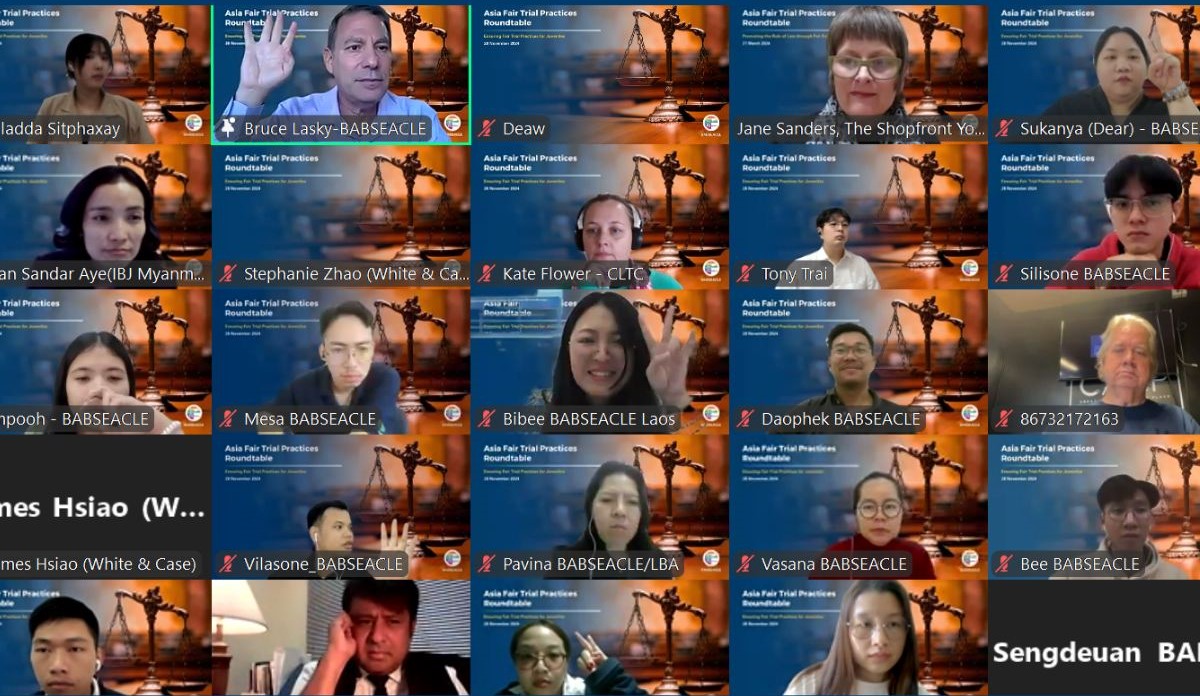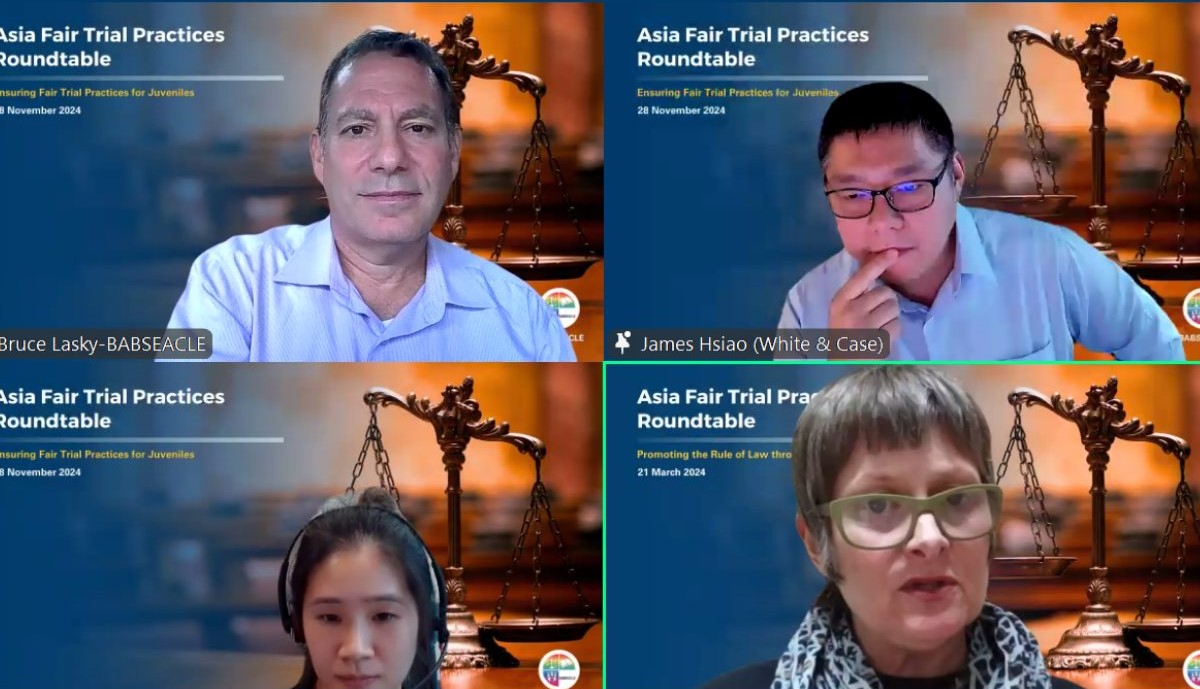Asia Fair Trial Practices Roundtable
Ensuring Fair Trial Practices for Juveniles
28 November 2024
One of the core areas that BABSEACLE and many of our partners focus on is the issue of fair trial. We recognize how important this is in relation to access to justice, the rule of law, and the role of both lawyers and others in helping to ensure fair trial principles. The issue of fair trial and juvenile justice is one of the many areas related to fair trial issues. It is an incredibly important area, and unfortunately, it is an area as important as it is that is not always focused on.
BABSEACLE hosted the Asia Fair Trial Practices Roundtable, titled ‘Ensuring Fair Trial Practices for Juveniles’, on Thursday, November 28th, 2024. The roundtable brought together over 50 practicing lawyers, including university academics, law students, and representatives from for-profit and not-for-profit organizations, to explore effective strategies for ensuring legal proceedings are fair, protect the rights of juveniles, and prioritize the well-being and development of young individuals.
Jane Sanders from the Shopfront Youth Legal Centre discussed a foundational issue related to fair trials and juveniles: the right to counsel or legal representation, stressing that this right for children must be ensured—they must have the opportunity to receive free legal assistance, know where to access it, and have some choices in the matter, taking into account their vulnerability and other issues such as confessions, pretrial detention, speedy trial, and the need for assistance in the trial process with intermediaries.
Kate Flower from the Centre for Law and Transformative Change spoke about Cambodia’s legal history and the challenges in ensuring fair trial rights for juveniles. She emphasized progress in recognizing the developmental needs of young people in the justice system, marking a shift toward a more humane, rehabilitative approach. She also highlighted community involvement, social services, and NGO interventions, showcasing a range of locally-led initiatives, such as the child justice network and its diversion program, along with trial monitoring, and policy dialogue with the government.
James Hsiao and Stephanie Zhao from White & Case discussed juvenile representation models: direct representation, where the child is treated as a client with confidentiality and instructions, and the best interest model, where the representative advocates based on the child’s best interests. They presented case studies to help participants understand the considerations in choosing between these two approaches.
Nan Sandar Aye from IBJ Myanmar broadened participants’ understanding of working with juveniles in Myanmar, particularly those involved in drug offenses. She discussed specific challenges related to these cases, including the need for proper evidence, appropriate drug possession charges to ensure greater rights and protections, as well as fair trials for people who use drugs.
This roundtable would not have been possible without the support of our speakers, facilitator, and participants. Thank you for making it such an enriching experience and for your commitment to advancing fair and effective justice systems for juveniles worldwide. Together, we are making a positive impact!


Contact:
For more information, contact BABSEACLE team at [email protected]






